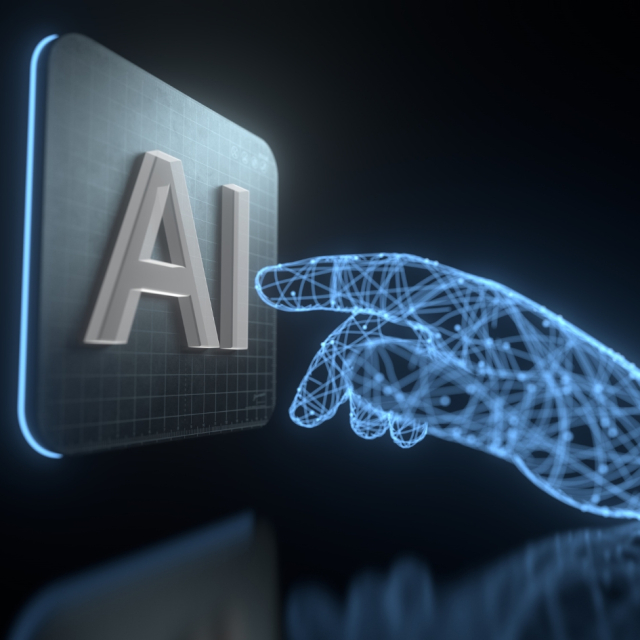Artificial intelligence (AI) is no longer a futuristic concept but an integral part of our lives. From virtual assistants like Alexa and Siri to recommendation systems on streaming platforms, AI is transforming the way we interact with technology. However, the future of this discipline promises to be even more revolutionary, with advances that could profoundly impact fields such as medicine, education, transportation, and the economy. This article analyzes the possible directions that AI will take in the coming decades, highlighting the opportunities and challenges that lie ahead.
Expected advances in AI development.
More advanced generative AI.
Generative AI, such as GPT language models or image generation systems, will continue to evolve, enabling more sophisticated applications. In the future, these technologies could:
- Create high-quality multimedia content, including videos, music and literature.
- Simulate virtual environments for training or entertainment.
- Assist with creative tasks such as graphic design or writing.
Generative AI is also expected to play a crucial role in solving complex problems such as designing personalized medicines or modeling climate phenomena.
Fountain:
- OpenAI: The Future of AI
AI-powered personalized medicine.
The use of AI in medicine is revolutionizing the diagnosis and treatment of diseases. In the future, we are likely to see:
- Data-driven diagnostic systems that detect diseases in their early stages.
- Personalized therapies designed for each patient's genetic profile.
- Robot-assisted surgeries with near-perfect precision.
A McKinsey report predicts that AI will have a significant impact on healthcare efficiency, reducing costs and improving outcomes.
Fountain:
- McKinsey & Company: AI in Healthcare
Full automation in transport.
Autonomous transportation is another field where AI is making a noticeable difference. Companies like Tesla, Waymo, and Uber are already working on autonomous vehicles, but the future could include:
- Fully automated public transport networks.
- AI-optimized logistics and freight transport, reducing costs and emissions.
- Greater road safety thanks to more advanced autonomous driving systems.
According to Forbes, mass adoption of autonomous vehicles could be a reality within the next two decades, transforming our cities and the way we get around.
Fountain:
- Forbes: AI in Autonomous Vehicles
Impact of AI on society.
Transformation of employment.
One of the biggest challenges of the future of AI is its impact on the job market. While automation can increase efficiency, it also poses unemployment risks in certain industries. However, new roles will also be created, such as AI ethics experts, intelligent system designers and data analysts.
According to a report by the World Economic Forum, AI could displace 85 million jobs by 2025, but also create 97 million new job opportunities.
Fountain:
- World Economic Forum: Future of Jobs Report
Ethics and regulation.
As AI becomes more powerful, ethical and privacy concerns also increase. Some of the key issues include:
- Responsible use of personal data.
- Preventing bias in algorithms.
- The development of regulations that limit the use of AI in harmful activities, such as autonomous weapons.
Organizations such as UNESCO are working to create global guidelines to ensure that AI is developed ethically and responsibly.
Fountain:
- UNESCO: AI Ethics Guidelines
The challenges of the future of AI.
The threat of mass unemployment
As mentioned above, automation could displace millions of jobs, especially in sectors such as manufacturing, logistics and essential services. Although new roles will be created, governments and companies will need to invest in training workers to adapt to this new reality.Security and cyber attacks
The development of AI systems also opens the door to new types of cyberattacks. For example, hackers could use AI to generate more sophisticated and targeted attacks. In addition, the reliance on autonomous systems in critical sectors could increase the risks if these systems are compromised.The technological singularity
The “technological singularity” is a concept that describes a point at which machines surpass human intelligence and become capable of improving and replicating themselves without human intervention. Although this scenario is still hypothetical, it raises important questions about the control and ethical implications of AI.
Opportunities that we should not ignore.
Despite the challenges, the future of AI is full of exciting possibilities. Some key areas include:
- Education: Personalizing learning could help close educational gaps and offer resources tailored to individual students’ needs.
- Climate change: AI could optimize resource use and help fight climate change by analyzing large amounts of data.
- Space exploration: Companies like SpaceX are already using AI to improve their navigation and exploration systems.
The future of artificial intelligence is as promising as it is complex. From medical advances to innovations in transportation and education, AI has the potential to transform every aspect of our lives. However, it also poses ethical, social and economic challenges that we cannot ignore.
To maximise its benefits and minimise its risks, it is essential that governments, businesses and citizens work together to develop and regulate this technology responsibly. Only in this way can we ensure that AI is a tool that enriches our lives, rather than one that complicates them.
Sources consulted:
- OpenAI: The Future of AI
- McKinsey & Company: AI in Healthcare
- Forbes: AI in Autonomous Vehicles
- World Economic Forum: Future of Jobs Report
- UNESCO: AI Ethics Guidelines
